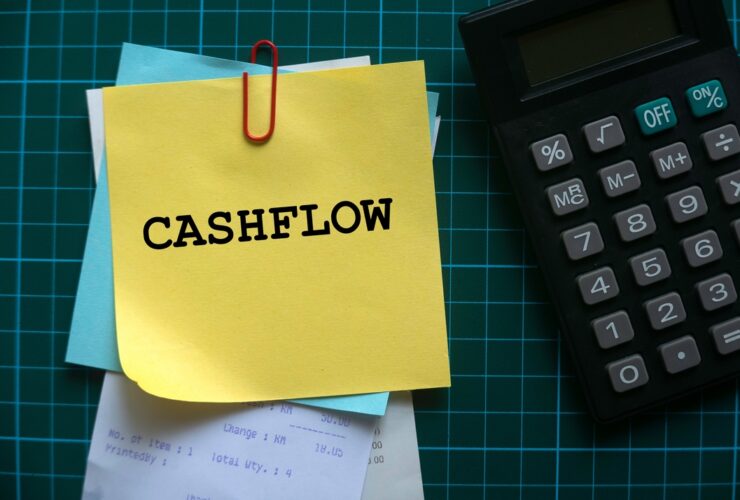How Do I Qualify for a Small Business Loan?
Small businesses often need some kind of financing to expand their business or manage cash flow. But finding the best financing options can be tricky, especially if you are not familiar with financial terms and conditions. As such, it might be a good idea to understand the options available to you as a small business, as well as how you can qualify for a loan.
What is a Small Business Loan?
A small business loan is a funding that businesses can take out when they need to buy new equipment or expand their operations. They can also use an overdraft to cover a cash flow shortage or guarantee payment for purchases and other expenses. Banks also offer credit cards to businesses, especially for these purchases.

Things to Consider Before Applying for a Small Business Loan
Finding a source of funding for your business is not as simple as walking into a bank and asking for a loan. Instead, it takes a lot of planning. Qualifying for a loan depends on these preparations, and here’s what you should do before you seek out a loan.
1. Determine how much funding you need.
At this point, you should already be clear as to where you will need the money. Knowing the purpose of the loan allows you to create a more or less accurate projection for your business. It will likewise prevent you from borrowing less than what you really need.
This often happens to small business owners, who then need to take out another loan to cover the difference. Borrowing from two or more lending institutions can complicate your financial situation.
2. Create a strong business plan.
Banks and other lenders want to know how your business will make money. This will give them an assurance that you will be able to repay your loans.
A good business plan will help you convince them about your capacity for repaying the loan. In addition, it should indicate your business strategy for at least the next three years.
A business plan should describe your objectives and ways to achieve them. It should be concise, focusing only on information that the reader needs to know. The process of creating a business plan will help you solidify your ideas and give you a criterion to measure your progress.
3. Define your financial limits.
Knowing your financial limits can determine your ability to repay. You should figure out:
- If you need an upfront fund amount or as you need it
- How much monthly repayment you can afford?
- What is your loan to value ratio (LVR)? The lower your LVR, the more chance for you to secure a loan
- If you have assets you can offer as collateral
- If you have someone who can guarantee your loan should the lender ask for a guarantor
- If you are willing to offer a percentage of your business to investors
4. How much time do you need to repay your small business loan?
Having a time frame to repay your loan gives the impression that you know what you are doing. Just make sure that this time frame is realistic. You don’t want to be in a hurry to finish repaying your loan but end up missing some of the monthly repayments.
Keeping your financial statements accurate and up-to-date can help you determine how much you are able to pay monthly. You can also determine the interest rate that you will be comfortable with and the duration of the loan.
5. Keep a strong credit rating.
Keeping your payments current can help you maintain a strong credit rating. This encourages positive cash flow, which will increase the possibility of your loan being approved. Moreover, paying your accounts on time will make lenders feel confident that you will also honour your loan commitments with them.

Things You Need When Applying for a Loan
When you apply for business funding, banks and other lenders may ask you to provide various documents. Make sure you gather all the necessary documentation, including:
1. Your company’s financial statements
Your financial statements generally consist of a balance sheet, income statement and statement of cash flow. They will also show your assets, liabilities, and net worth. Lenders will also be able to see your income and expenses, which they can use to determine if you can make repayments.
Some lenders also ask for the latest tax returns and business activity statements, as well as trusts or self-managed superannuation funds related to your business.
2. Proof of individual income
If you are a director or a shareholder of the company, lenders will ask for your recent individual tax returns and a Notice of Assessment from the Australian Taxation Office. You may also want to provide information about other income that is not related to your business.
3. Bank statements, savings, and liabilities
Lenders want to get a complete picture of your financial situation, so they usually ask for your personal and business income details. They will also want to see your credit card statements, loans with other financial institutions and other savings and liabilities.
You will also need to show your (paper or electronic) bank statements for the last six months. Your guarantors, if any, will also need to provide this information.
Make sure you have proper identification with you, such as your driver’s licence or passport. You may also want to have your trust deed, partnership agreement or company registration handy in case they ask for it.
4. Other documents for start-up businesses
If you have less than 12 months of trading history or are yet to start your business, you will be asked to provide a few extra things. Be sure to bring your business plan, lease agreement, business contract of sale, and cash flow projections.
Apply for Commercial Loans from a 17-Year Lender in Australia
If you are looking to source funding for your small business, give Abacus Finance a call. We have been providing high-quality loan services to both individual and corporate clients since 2004.
With our vast experience in commercial loans, we’ll be glad to support you with everything your business needs in order to grow. Contact us, and we will reply in 60 minutes or less.


